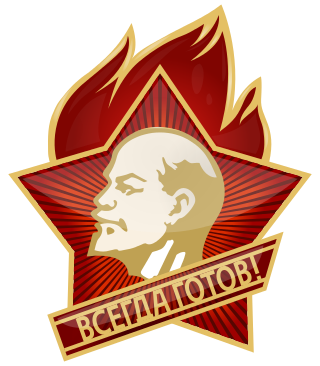
A battalion is a military unit, typically consisting of 300 to 1,200 soldiers commanded by a lieutenant colonel, and subdivided into a number of companies. In some countries, battalions are exclusively infantry, while in others battalions are unit-level organizations.

Kimon Georgiev Stoyanov was a Bulgarian general who was the Prime Minister of the Kingdom of Bulgaria from 1934 to 1935 and again from 1944 to 1946.

The Fatherland Front was a Bulgarian pro-communist political resistance movement, which began in 1942 during World War II. The Zveno movement, the communist Bulgarian Workers Party, a wing of the Bulgarian Agrarian National Union and the Bulgarian Social Democratic Workers Party all became part of the OF. The constituent groups of the OF had widely contrasting ideologies and had united only in the face of the pro-German militarist dictatorship in Bulgaria. At the beginning, the members of the OF worked together, without a single dominating group. Professional associations and unions could be members of the front and maintain their organisational independence. However, the Bulgarian Communist Party soon began to dominate. In 1944, after the Soviet Union had declared war on Bulgaria, the OF carried out a coup d'état and declared war on Germany and the other Axis powers. The OF government, headed by Kimon Georgiev of Zveno, signed a ceasefire treaty with the Soviet Union. In the summer of 1945 most of BANU led by Nikola Petkov and most of the Social-Democrats had left the OF and became a large opposition group which later on after the 1946 Grand National Assembly election would become a coalition named "Federation of the village and urban labour" with 99 MPs out of 465.
Zveno, Politicheski krŭg "Zveno", officially Political Circle "Zveno" was a Bulgarian political organization, founded in 1930 by Bulgarian politicians, intellectuals and Bulgarian Army officers. It was associated with a newspaper of that name.

The Tupolev TB-3 was a monoplane heavy bomber deployed by the Soviet Air Force in the 1930s and used during the early years of World War II. It was the world's first cantilever wing four-engine heavy bomber. Despite obsolescence and being officially withdrawn from service in 1939, the TB-3 performed bomber and transport duties throughout much of World War II. The TB-3 also saw combat as a Zveno project fighter mothership and as a light tank transport.

William Weisband, Sr. was a Ukrainian-American cryptanalyst and NKVD agent, best known for his role in revealing U.S. decryptions of Soviet diplomatic and intelligence codes to Soviet intelligence.
An armoured corps is a specialized military organization whose role is to conduct armoured warfare. The units belonging to an armoured corps include military staff, and are equipped with tanks and other armoured fighting vehicles, as well as supporting vehicles.

Military organization or military organisation is the structuring of the armed forces of a state so as to offer such military capability as a national defense policy may require. In some countries paramilitary forces are included in a nation's armed forces, though not considered military. Armed forces that are not a part of military or paramilitary organizations, such as insurgent forces, often mimic military organizations, or use ad hoc structures, while formal military organization tends to use hierarchical forms.
The Bulgarian coup d'état of 1934, also known as the 19 May coup d'état, was a coup d'état in the Kingdom of Bulgaria carried out by the Zveno military organization and the Military Union with the aid of the Bulgarian Army. It overthrew the government of the wide Popular Bloc coalition and replaced it with one under Kimon Georgiev.
Zveno was a parasite aircraft developed in the Soviet Union during the 1930s. It consisted of a Tupolev TB-1 or a Tupolev TB-3 heavy bomber mothership and two to five fighters. Depending on the variant, the fighters either launched with the mothership or docked in flight, and they could refuel from the bomber. The definitive Zveno-SPB using a TB-3 and two Polikarpov I-16s, each armed with two 250 kg (550 lb) bombs, was used operationally as a strategic weapon system with good results against targets in Romania during the opening stages of the German-Soviet War. The same squadron later carried out an attack against a bridge on the River Dnieper that had been captured by German forces.

The Bulgarian Resistance was part of the anti-Axis resistance during World War II. It consisted of armed and unarmed actions of resistance groups against the Wehrmacht forces in Bulgaria and the Tsardom of Bulgaria authorities. It was mainly communist and pro-Soviet Union. Participants in the armed resistance were called partizanin and yatak.
Pioneer commonly refers to a settler who migrates to previously uninhabited or sparsely inhabited land.
The zveno was a small grassroots work-group within Soviet collective farms. It was, or became, a subunit within the collective-farm brigade.
Young Pioneers may refer to:
The brigade was a labor force division within the Soviet collective farm (kolkhoz).

A kolkhoz was a form of collective farm in the Soviet Union. Kolkhozes existed along with state farms or sovkhoz. These were the two components of the socialized farm sector that began to emerge in Soviet agriculture after the October Revolution of 1917, as an antithesis both to the feudal structure of impoverished serfdom and aristocratic landlords and to individual or family farming.

The Vladimir Lenin All-Union Pioneer Organization, abbreviated as the Young Pioneers, was a mass youth organization of the Soviet Union for children and adolescents aged age 9–14 that existed between 1922 and 1991. Similar to the Scouting organisations of the Western Bloc, Pioneers learned skills of social cooperation and attended publicly funded summer camps.
This page is based on this
Wikipedia article Text is available under the
CC BY-SA 4.0 license; additional terms may apply.
Images, videos and audio are available under their respective licenses.








